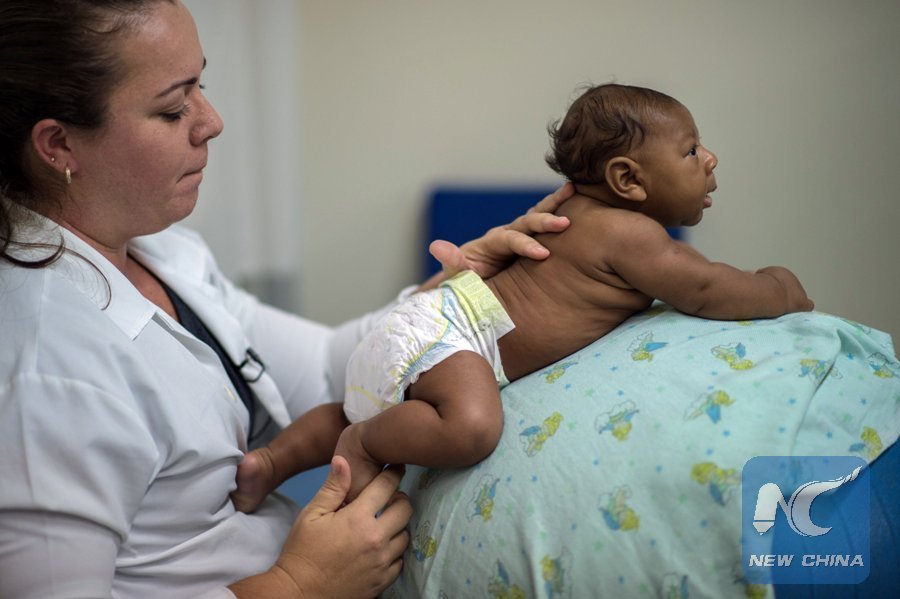
This file photo taken on January 28, 2016 shows physical therapist Isana Santana treating Ruan Hentique dos Santos, suffering from microcephalia caught through an Aedes Aegypti mosquito bite, at Obras Socias irma dulce hospital in Salvador, Brazil. (Xinhua/AFP PHOTO)
WASHINGTON, March 31 (Xinhua) -- The U.S. National Institute of Allergy and Infectious Diseases (NIAID) said Friday it has begun a Phase two clinical trial of its experimental DNA vaccine designed to protect against Zika virus in the United States as well as Central and South America.
The trial, called VRC 705, is expected to enroll at least 2,490 healthy participants in areas of confirmed or potential active mosquito-transmitted Zika infection, including the continental United States and Puerto Rico, Brazil, Peru, Costa Rica, Panama and Mexico.
The NIAID, part of the U.S. National Institutes of Health, said in a statement that the trial aims to evaluate the vaccine's safety and ability to stimulate an immune response in participants as well as assess the optimal dose for administration.
It also will attempt to determine if the vaccine can effectively prevent disease caused by Zika infection.
The study is currently expected to be completed by 2019.

A specialist fumigates the Nueva Esperanza graveyard in the outskirts of Lima on January 15, 2016. Health officials fumigated the largest cementery in Peru and second largest in the world to prevent Chikunguya and Zika virus, which affect several South American countries. (Xinhua/AFP PHOTO)
The Zika vaccine being tested in this study contains a small circular piece of DNA called a plasmid into which scientists have inserted genes that encode two proteins found on the surface of the Zika virus, the NIAID explained.
Once injected into muscle, the encoded proteins assemble into particles that mimic Zika virus and trigger the body's immune system to respond.
Currently there is no licensed vaccine to prevent disease caused by Zika infection, which is mainly transmitted via the bite of infected Aedes aegypti mosquitoes but also can be transmitted sexually.

